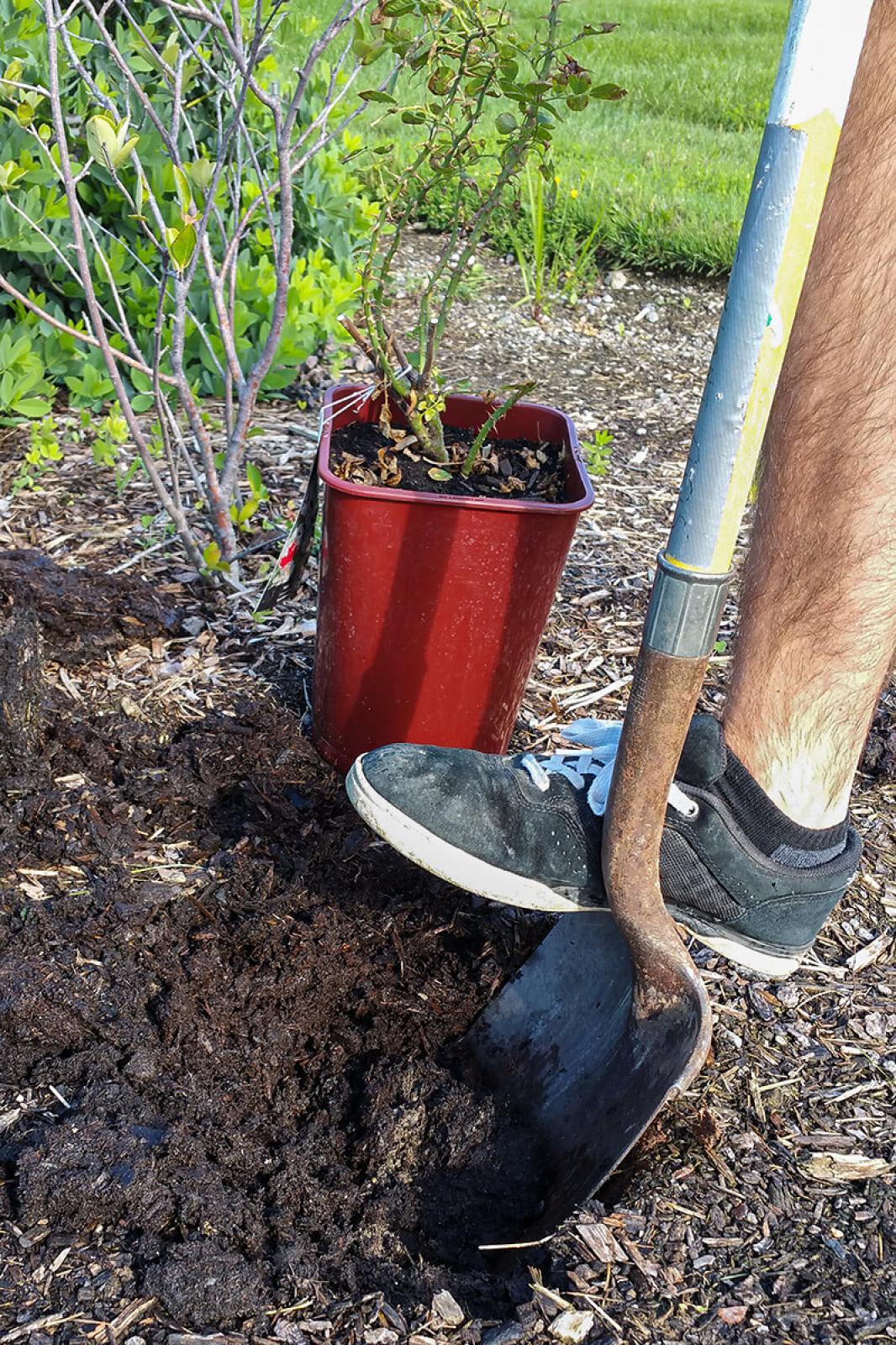October 31, 2016
Garden centre liability: Is there any?

It is provincial law in Ontario for the person doing any digging to first get locates.
 I discussed a hypothetical situation with a large garden centre in Ontario about a year ago: If a homeowner purchases a tree or shrub from a garden centre and strikes an underground utility while planting the product, causing serious damage, injury, or death, is there any possibility the garden centre could be held accountable? I am not aware of any such case in the courts where legal action was taken, so we are only talking about a hypothetical situation.
I discussed a hypothetical situation with a large garden centre in Ontario about a year ago: If a homeowner purchases a tree or shrub from a garden centre and strikes an underground utility while planting the product, causing serious damage, injury, or death, is there any possibility the garden centre could be held accountable? I am not aware of any such case in the courts where legal action was taken, so we are only talking about a hypothetical situation.If a situation like this ever went to trial, many questions would be asked that we probably have never thought about: What should the consumer know about planting a tree or shrub? Were any planting instructions given? Are there any laws governing planting trees and shrubs? What are the expectations of the consumer? Who is ultimately responsible for preventing underground utility hits by the public?
I can’t say for certain this situation will never happen. In this day and age, if there is a lawsuit in any area of society, everyone involved would be sued. When the issue is with a consumer product, the manufacturer, distributor, dealer and retail store (or installer) would probably all be sued for damages. Who would ultimately be held responsible? Is there any liability on the sellers’ part? Your guess is as good as mine. If there is some liability by the seller, to what extent? In this situation, the marketing chain of distribution goes from grower to garden centre, garden centre to a landscaper, or directly to the property owner for installation.
What the law says
The Occupational Health and Safety Act (OHSA) in Ontario says whoever digs (breaks ground) has the responsibility for obtaining markings of any underground utilities before they dig. Does the person doing the digging know about ON1CALL? Do they understand best practices when excavating? Do they know about the tolerance zone? Do they understand hand digging? Who has the responsibility of knowing these details, and is there any responsibility on the part of the seller (garden centre) of the product? The answer, perhaps, is yes. Maybe the best approach is to assume the garden centre has some liability and then ask what you can do to mitigate this responsibility or transfer it totally to the person doing the planting. If you think there might be some responsibility on the part of the garden centre, then there are a number of things you can implement in order to minimize your obligation.Signage and literature at checkout
Signage placed at the checkout counter displaying ON1CALL (1-800-400-2255) with the messaging that it is provincial law in Ontario for the person doing the digging to first get locates, would provide great education to your customers. You can also include Dig Safe literature at the checkout counter for staff to give to your customers to take home. This literature can be sourced from the Ontario Regional Common Ground Alliance (ORCGA) below.Placing similar signage where trees and shrubs are located would also help to educate your customers.
Staff training
Both people at the checkout counter, the sales staff and the purchaser, should know about locates, and who is responsible for doing what. If the homeowner is doing the planting, they must know it is their job to call ON1CALL for locates and that they should outline in white paint where they plan to plant their tree or shrub so the locating company can double check this area for underground utilities. If planting in the back or side of the property, a private locate may be necessary.Discuss at monthly staff safety meetings
Discuss this subject at each staff safety meeting and it will reinforce the importance of the issue and remind staff to inform customers about underground damage prevention and their role in obtaining locates in the process. This will allow you to continue to educate your staff and give focus to this important subject and help minimize any liability. It’s just another form of good customer service to help them to avoid any potential problems that may reflect back on you in a negative way.Join the ORCGA
Joining the ORCGA shows everyone you care about underground safety and damage prevention of the underground utility assets. The ORCGA’s purpose is to eliminate, or reduce, underground utility hits by the public and the excavating industry. The ORCGA holds public Dig Safe events around the province to educate people about the dangers underground and the importance of calling ON1CALL for locates before digging. The ORCGA also uses Dig Safe events to educate people about the fact it is law in Ontario that the party doing the digging is responsible for getting locates before they dig.Hold a Dig Safe event at your garden centre
To bring focus to this important area, and show your corporate responsibility, your garden centre can hold a Dig Safe event in the spring each year. The ORCGA can help you to plan this event and provide the appropriate literature and suggestions for the event.The numbers
If we look at the statistics, the total number of underground utility hits by all groups in the province for 2015 was 4434. On average, 15 per cent of these are from the green professions (landscaping, fencing, irrigation, agriculture and waterways). Twelve per cent are from the public. The four-year average for the public is 543 hits annually. Believe it or not, four out of every 10 hits are because nobody called ON1CALL for locates. This begs the question, what are the chances there may be a serious accident resulting from one of these 543 hits because nobody called for locates? And what are the chances a garden centre who sold the product to the homeowner could then be sued for negligence? Your guess is as good as mine. As a minimum, I suggest posting signs or having literature or sales staff at the checkout remind customers about underground utilities and to call ON1CALL before they dig. Hopefully we never have an underground hit by the public that creates the hypothetical situation discussed here.Conclusion
By following the above steps, you can take responsibility for doing everything possible to make everyone safe. Think of it like an insurance policy in case of a lawsuit. Whether the garden centre has all, of or even part, of the responsibility on any liability due to a homeowner underground utility accident, we can’t say for sure. By considering the above, you are being proactive and doing the responsible thing for your customers and providing them with good customer service while showing your expertise and responsibilities.Terry Murphy can be reached at tvmurphy@ca.inter.net.